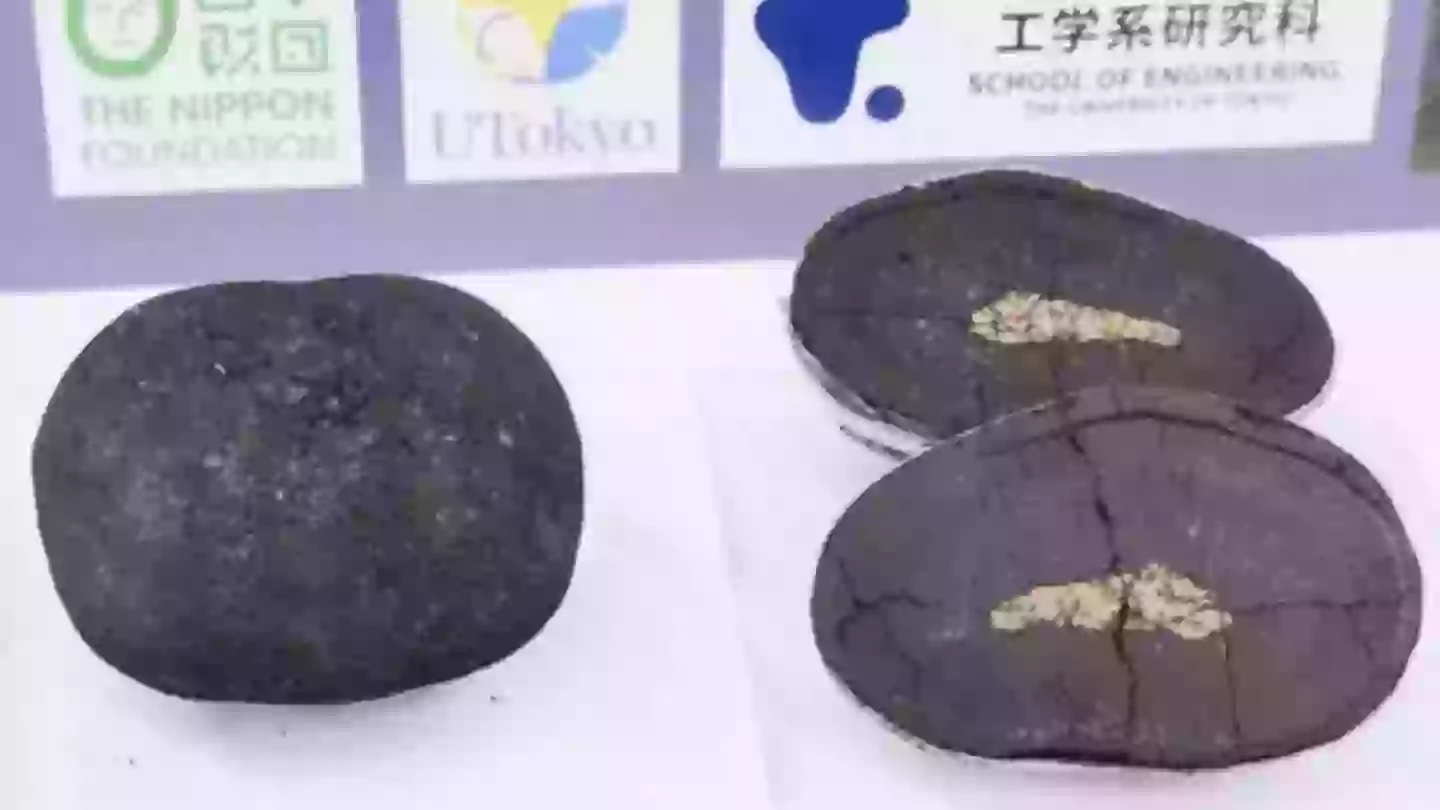Japan is investing billions into green energy after discovering a new metal.
In efforts to become a net-zero country by 2050, Japan is investing heavily in hydrogen - which it believes has the potential to develop into a major global industry.
Part of its pursuit for a greener future through its use of hydrogen-based energy by pouring in over $107 billion, the country's leading scientists have developed a cheaper solution to the rare and expensive metals that are used in the production of hydrogen.
That is manganese, which is a rare Earth mineral that was found on the seabed of Minami-Tori-shima island - some 1,200 miles from Japan's bustling capital.
A field of dense manganese nodules were discovered 5,700 meters below sea level, and contain millions of metric tons of cobalt and nickel.
The manganese nodules found on the sea bed (The Nippon Foundation) They were thought to have formed over millions of years as metals transported in the ocean attached themselves to fish bones and stuck to the seabed, according to Nikkei Asia.
Now, almost 10 years on from its discovery, scientists from the RIKEN Institute have manipulated manganese's structure to allow it be used for hydrogen production in PEM electrolysers - which stands for proton exchange membrane.
It is a significant discovery and one that means 1,000 percent more hydrogen will be produced in the process, compared to the likes of metals like platinum or iridium.
Thanks to manganese nodules containing cobalt and nickel, it can be used to develop electric vehicle (EV) batteries as well as to make jet engines, gas turbines and in chemical processing.
A survey of the seabed it was found in stated it has around 610,000 metric tons of cobalt and 740,000 metric tons of nickel, which equates to a staggering amount of money.
The deposits also contain copper (The Nippon Foundation) At the time of writing, one metric ton of cobalt is worth $24,300 while nickel is worth $15,497, according to market figures from Trading Economics.
Doing some simple math, it means the 610,000 metric tons of cobalt found was worth $14,823,000,000 while the 740,000 tones of nickel comes in at $11,467,780,000.
That gives us an eye-watering total of $26,290,780,000.
Of course, like any commodity, the markets can fluctuate meaning at times the minerals could be worth even more - or less.
Prices can also change based on demand pressures from the EV and energy storage industries.
But between April and May last year, some 230 million tons of the rare minerals were discovered after a team surveyed 100 seabed sites using remotely operated underwater vehicles.
So the discovery of manganese has paid for the investment itself.

 Joe Yates
Joe Yates
